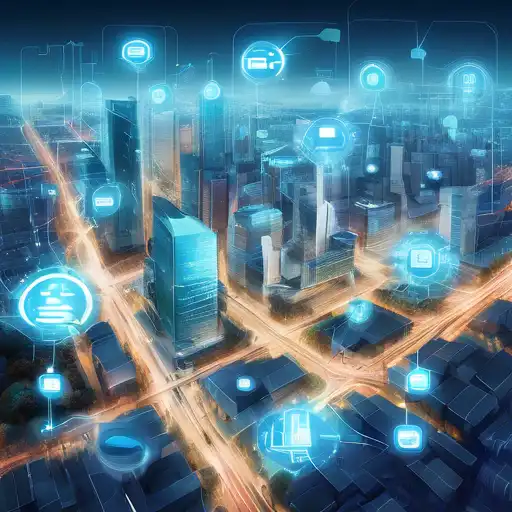Introduction to IoT in Smart Cities
The Internet of Things (IoT) is revolutionizing the way cities operate, making them smarter, more efficient, and more sustainable. By connecting devices and systems across urban environments, IoT technology enables real-time data collection and analysis, leading to improved decision-making and enhanced quality of life for residents.
Key Benefits of IoT in Smart Cities
IoT offers numerous advantages for smart cities, including:
- Enhanced Public Safety: IoT devices like surveillance cameras and sensors can monitor public spaces, reducing crime rates and improving emergency response times.
- Improved Traffic Management: Smart traffic lights and sensors can optimize traffic flow, reducing congestion and pollution.
- Energy Efficiency: Smart grids and meters help in managing energy consumption more effectively, leading to significant cost savings.
- Waste Management: IoT-enabled waste bins can signal when they are full, optimizing collection routes and frequencies.
Challenges and Solutions
Despite its benefits, implementing IoT in smart cities comes with challenges such as data security and privacy concerns. However, with advanced encryption and strict data governance policies, these issues can be mitigated.
Future Prospects
The future of IoT in smart cities looks promising, with advancements in AI and machine learning further enhancing its capabilities. As cities continue to grow, IoT will play a pivotal role in ensuring their sustainability and livability.
Conclusion
IoT is at the heart of the smart city revolution, offering solutions to urban challenges and improving the lives of citizens. By embracing this technology, cities can achieve greater efficiency, sustainability, and resilience.
For more insights into how technology is shaping urban environments, check out our article on Digital Transformation in Urban Planning.
